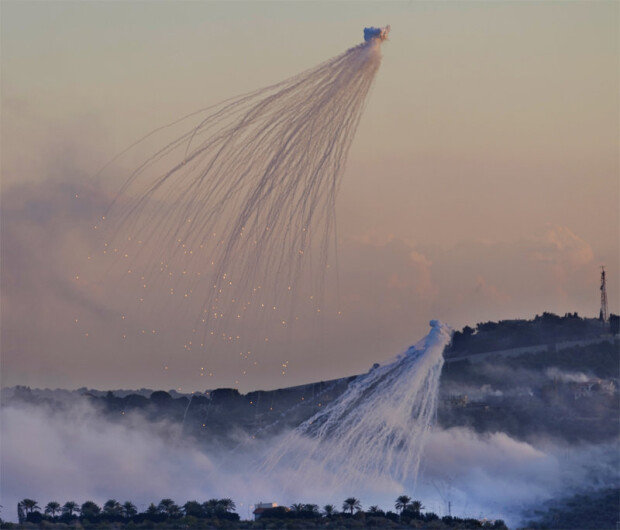Israel allegedly used US white phosphorus in Lebanon attack
Israel allegedly used US white phosphorus in Lebanon attack
Posted December. 13, 2023 10:16,
Updated December. 13, 2023 10:16

Allegations have surfaced that the controversial white phosphorus munitions used in southern Lebanon, near the Hezbollah stronghold, during the early stages of the conflict between Israel and the Palestinian armed group Hamas in mid-October, were provided by the U.S. military. The claim comes amid ongoing backlash from Muslim, Arab, and young Democratic-leaning voters against U.S. military support for Israel, potentially posing a challenge for the Biden administration.
According to The Washington Post (WP) on Monday, its investigative team found remnants of three 155mm white phosphorus shells in the border town of Duhaira in southern Lebanon. The serial numbers indicated that these shells were produced in 1989 and 1992 in Louisiana and Arkansas ammunition depots in the United States, respectively. The surface of each shell was marked with 'WP,' denoting white phosphorus. Earlier, the international human rights organization Amnesty International had revealed that the Israel Defense Forces (IDF) used white phosphorus in the October 16 airstrike in Duhaira, causing injuries to at least nine civilians.
White phosphorus ignites at temperatures of 4,000 degrees Celsius upon contact with oxygen, producing intense heat, flames, and smoke. While historically used for smoke screens or illumination, it has more recently been employed as a lethal weapon, causing mass casualties over a wide area. Due to its gruesome effects of adhering to skin and melting flesh and bones, it is often referred to as the "devil's weapon." The Geneva Conventions and the Convention on Certain Conventional Weapons (CCW) prohibit its use in residential areas or densely populated civilian facilities.
The IDF released a statement on the same day, denying the news report, claiming, "We only use legal weapons." The IDF claimed to possess white phosphorus smoke shells in accordance with international law but insisted that they are used only when there is a need for smoke screens, not for offensive purposes.
purple@donga.com







